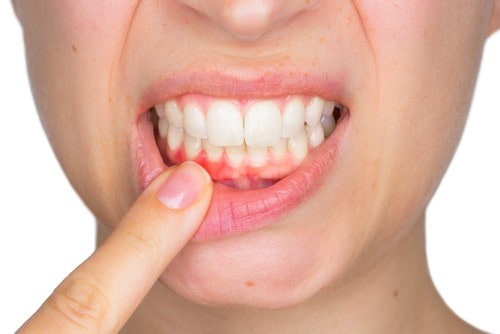Receding gums is one of the most common ailments that the patients at our dental office in Kettering experience. While gum recession is treatable, it can still be painful and sometimes scary to wonder what is going on inside your mouth. In this blog, we’re going to cover how to spot signs of gum recession and some of the reasons as to why this happens in the first place.
Why Do Gum Recede?
Let’s first take a look at why gum recession happens so we can better understand what it is and how to prevent it. While there are numerous causes to gum recession, some even out of our control, the most common reasons tend to be:
- Brushing too hard
- Grinding your teeth
- Tobacco use
- Genetics
- Gum disease
Knowing this, there are steps you can take to reduce your risk of receding gums. First, make sure you’re brushing and flossing everyday. Next, make sure that when you do brush you’re using a soft-bristled toothbrush and a gentle circular motion. Stopping the use of tobacco will not only lower your risk of gum recession but also all kinds of cancer, tooth loss, and stained teeth. While you can’t do much about your genetics, you can do something about catching any dental problems, including gum recession, early.
Recognize the Signs of Gum Recession
The best way to catch gum recession is to make sure you see your dentist in Kettering at least every six months. Regular visits help get a trained eye on your oral health and it’s the ideal way to identify any dental problems early when treatment tends to be more successful. But dental visits aren’t the only way to help protect your oral health. There are things you can monitor at home in between visits too. Keep a lookout for any of the following and notify your dentist of any concerns:
- Tiny indentations in the teeth close to the gum line
- Teeth that appear longer
- Sensitive teeth
What Happens if Gum Recession Isn’t Treated?
Obviously we’re big fans of getting treatment for gum recession (or any other oral health concern). But why are we in favor of it so much? Because of the wide-spread problems that can happen if treatment doesn’t happen, including:
- Severe inflammation and tooth pain
- Increased susceptibility to bacteria
- Eventual tooth loss
If you suspect that your gums are receding, we’d love to help. Call our Kettering dental office to schedule an appointment.


